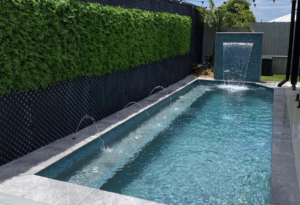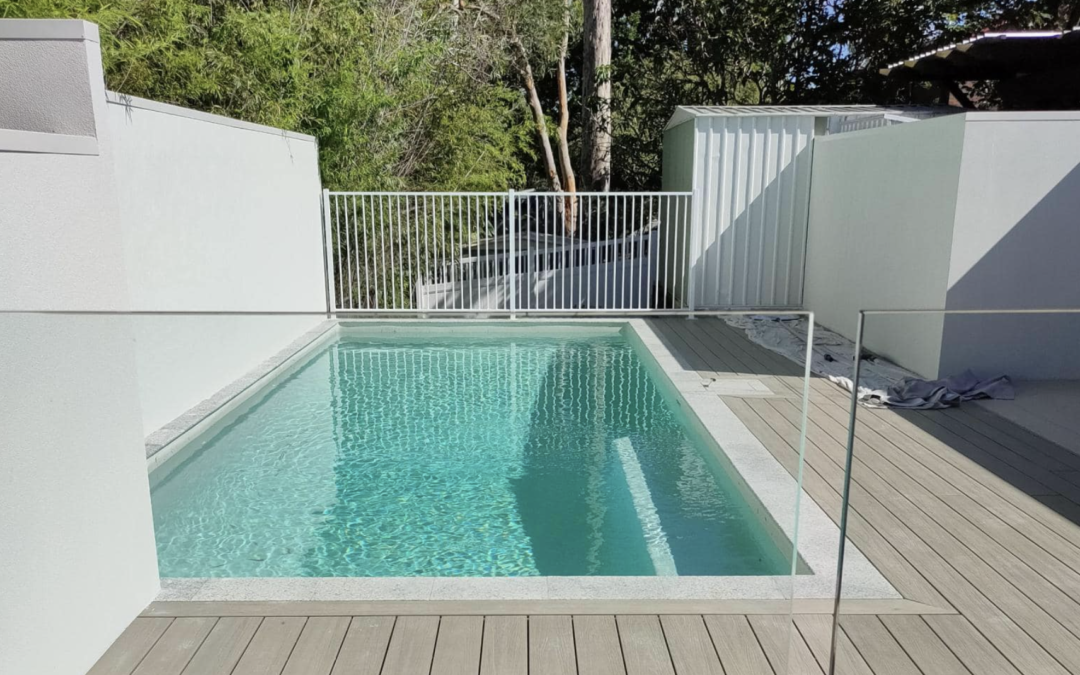One of the most daunting things about having your very own pool is the maintenance involved. Even though all pools are different, they all share the need of regular, routine cleaning. The absolute bare minimum is cleaning it once a week, but there are so many questions revolving around that. What do I clean? Is once a week enough? Do I need professional help? In this article we will answer these burning questions and more.

Skim pool of any debris as often as you can
Depending on time of year and where you live this may be more of a hassle, but regularly skimming your pool for any fallen leaves, grass or other debris will keep your pool pristine. Keeping an eye on the pool filter for the same debris will help tremendously. It’s important to remember to check at least every day or two to see if there has been any build up. This is because the longer it sits in the pool, the more will sink to the bottom, which in turn makes it harder to clean.
Maintain the Water Level
After skimming your pool for debris, that is a perfect time to also check the water levels. You’d be surprised at how many factors contribute to your pool losing water. Everything from splashing water out, getting out of the pool, wind, evaporation, ETC. It’s important to keep an eye on the water levels because if it gets too low it may damage the pump. You can use your garden hose to fill your pool to safe levels.
Check Chemical balance and PH levels
PH levels determine how acidic water is. The PH scale goes from 0 – 14, and the levels that your pool should be at is anywhere from 7.2 to 7.8. This will ensure that the water is not only safe to swim in, but it allows sanitisers to work efficiently. It’s also essential that you add the right amount of chemical cleaners to your pool. This is important to maintain and not over do as it will keep your water clean, and prevent skin irritation (if you get the levels of chemicals right). Chemical Cleaners such as chlorine should be carefully topped up after a big event. If you don’t do this the water will get cloudy!
Pool Vacuums
Pool vacuums are a staple for pool owners for a reason. There are 2 main kinds of pool vacuums; Manual and Automatic. If you have an automatic Pool Vacuum, there is no need to do much! All there is to do is at least once a week turn it on and let it do all the work for you! Although make sure to check it after every use for anything that might be stuck in it. If you have a manual pool vacuum, simply operate it the same as you would a regular vacuum. Go back and forth the length of your pool (it’s good practice to slightly overlap your laps) and clean any dirt or debris you see. This is an important practice because it keeps your water clear and limits the amount of chemicals you need to clean your pool.
Yearly Check Ups with Professionals
Even though most pool maintenance tasks are simple enough to do on your own, there are times that it’s best to call a professional. For example, if you have a heated pool, calcium deposits do tend to build up within the heater itself, which requires complete disassembling of the heater so all parts can be cleaned adequately. This job is best left to professionals. Although, if you do not have a heated pool, it is still a good practice to enlist the help of a professional once a year for a check up. They inspect your pool and check for any problems that you may have missed, along with general touch ups and tweaks.


Recent Comments